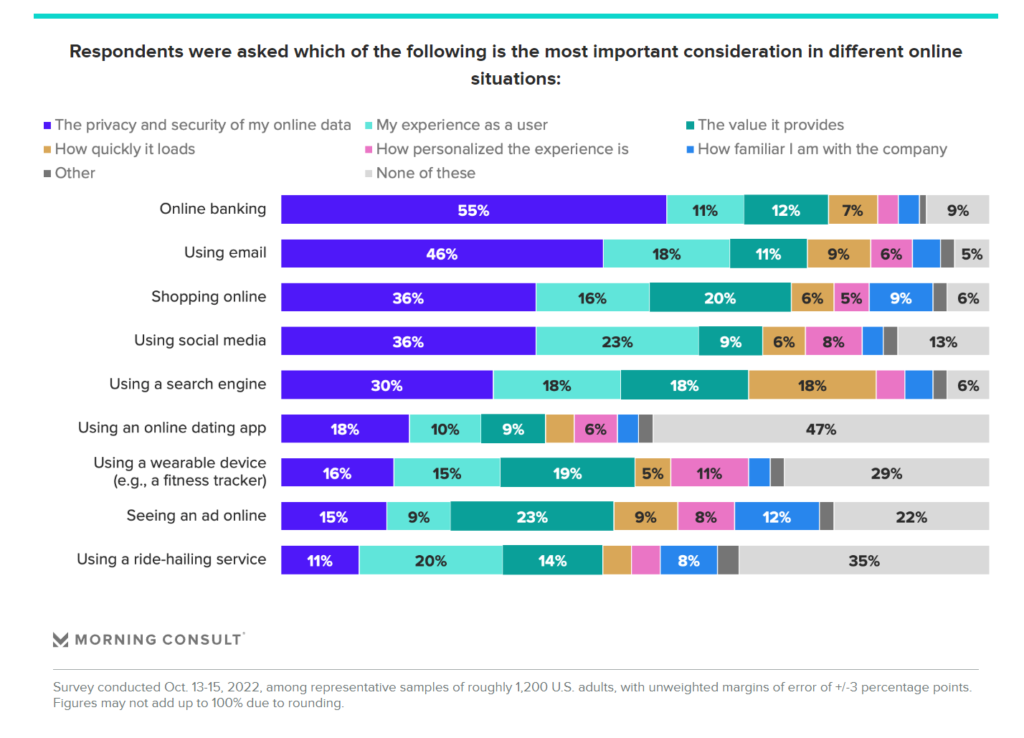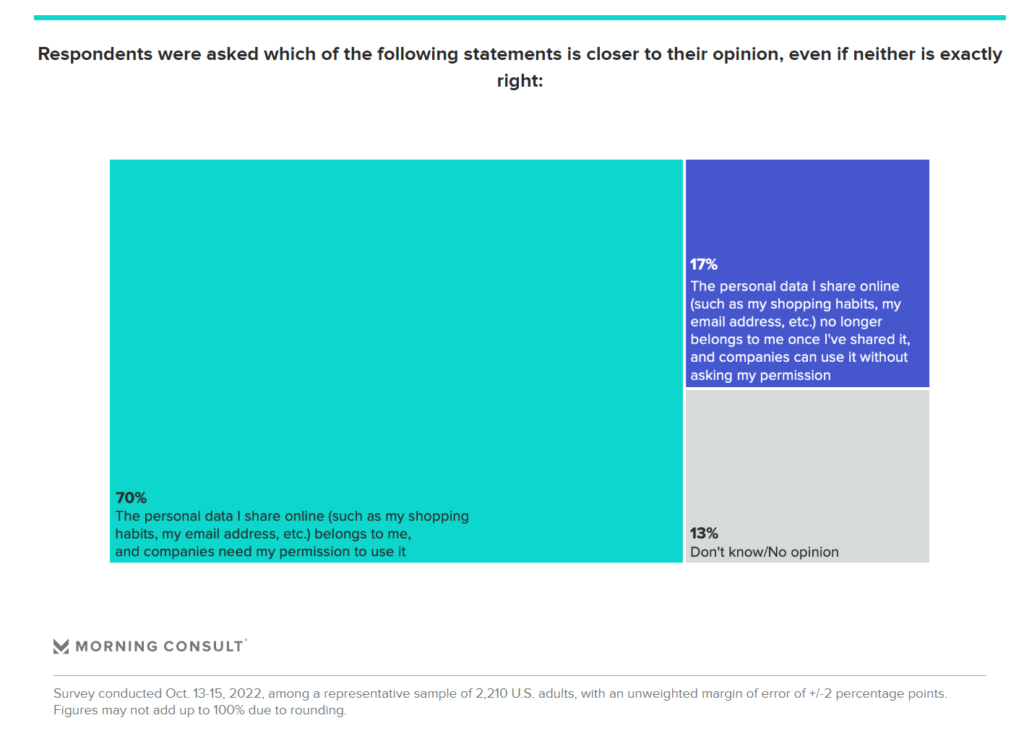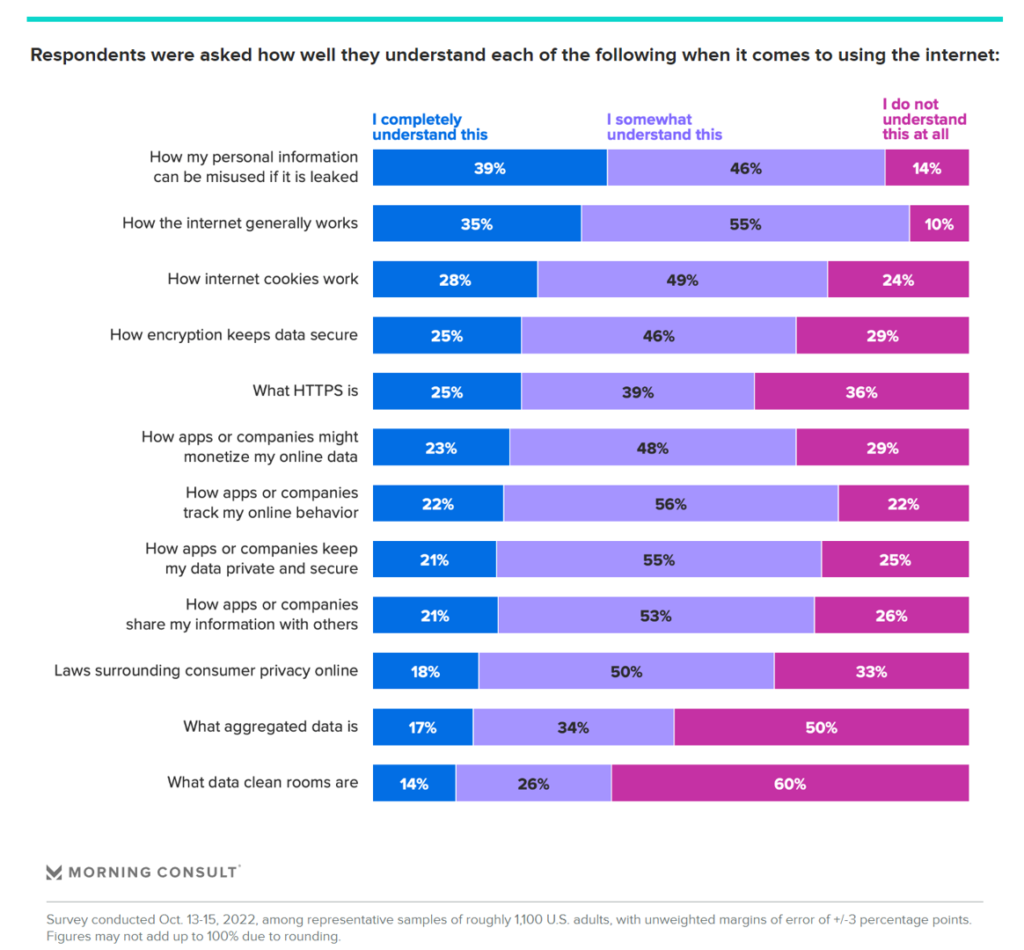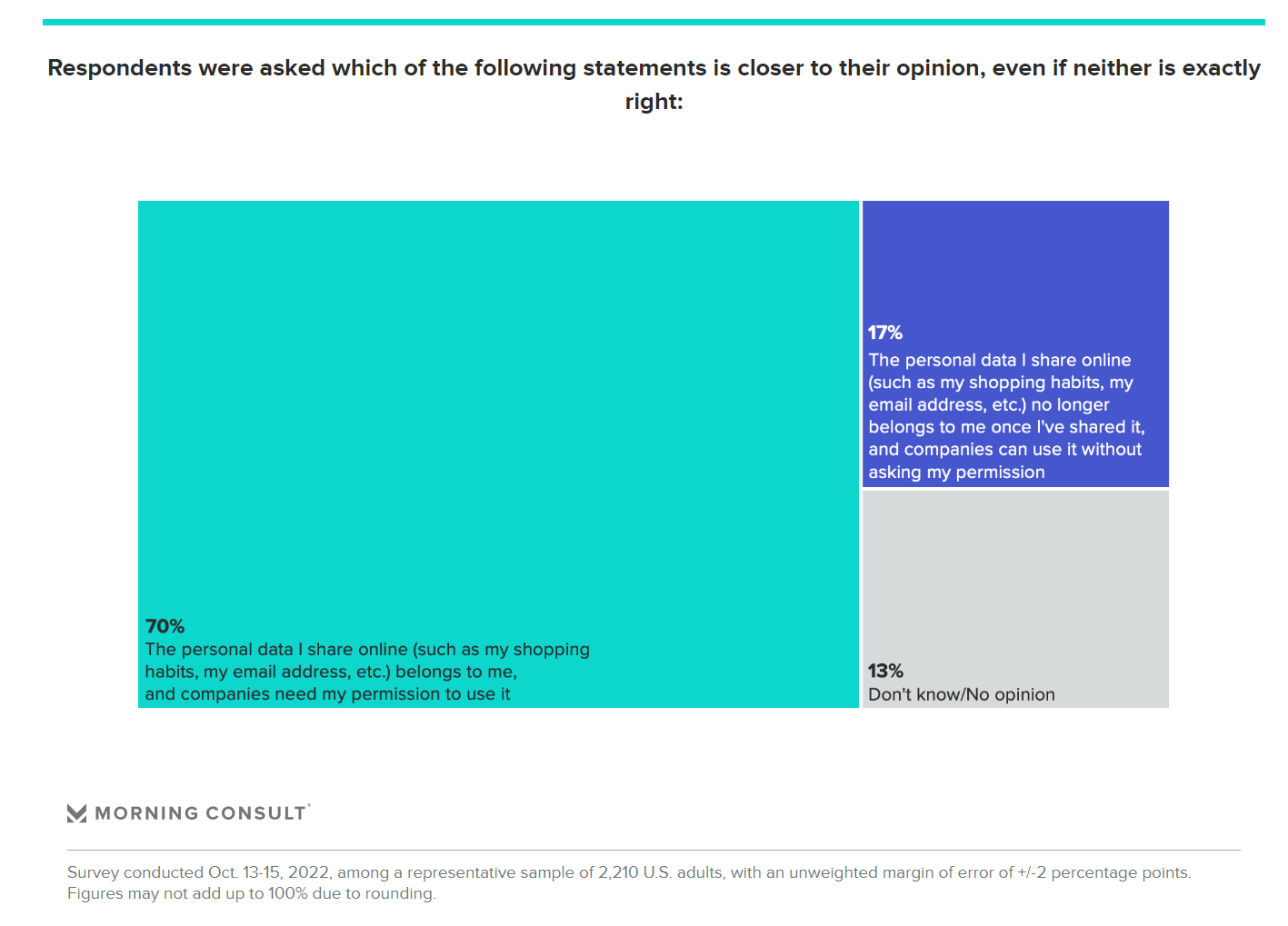“The security of online data is the top consideration for consumers across many forms of online activities including email, search, social media, banking, shopping and dating”….and using health apps.
A new poll from Morning Consult, explained on their website, explains that For Consumers, Data Privacy Has a Fluid Definition.

Those privacy nuances and concerns vary by activity, shown in the first chart here from the study.
For online banking, the most important consideration among most consumers (55%) is the privacy and security of their online data.
Privacy and security of personal data was less of a concern for people using online data apps, seeing ads online, or using a wearable device for, say, fitness tracking for between 15% and 18% of consumers.
For fitness tracking/wearable tech, it’s more about the value the tracking activity provides than concerns about privacy of “my” data. Roughly tied with privacy and security of data for wearable tech is one’s user experience, and then personalization — with personalization for wearable tech garnering the most interest across all of the activities Morning Consult explored.

The top-line of the poll was that 7 in 10 consumers believe the personal data they share in retail, via email, and other activities belongs to them — in other words, most consumers believe they “own” their personal data — and that they must grant companies permission to use that personal information.
More granularly, most consumers (over two-thirds) were concerned about allowing apps or sites to access their location data, online banking, accepting cookies on sites, creating new accounts on apps or sites, sharing health information with apps or sites, online shopping, paying bills, and so on.
In other words, most consumers are concerned about privacy and security for nearly every activity they undertake where personal data is shared, digitally — from storing photos online to using email, paying bills online or sharing health data.

Even with those concerns, it is important for health care industry stakeholders as stewards of peoples’ personal health information to understand the findings in this third chart from Morning Consult’s research.
Few people in the U.S. really understand laws surrounding consumer privacy online, how apps and companies share information with other organizations, or what aggregated data is.
Yet these aspects of data privacy (and others) are central to the needed trust bridge between patients and the health care providers, clinicians, researchers, and teams that are meant to have peoples’ best interests in bolstering their health, and more broadly community and public health.
Morning Consult surveyed 6,631 U.S. adults in October 2022 to assess peoples’ views on data privacy and security for this research.
![]()
Health Populi’s Hot Points: About 1 in 5 consumers told Morning Consult that location-tracking was their biggest concern in the event of a data breach of their wearable or fitness tracking device, roughly the same percentage of people most concerned about their identity being breached.
Several months into the COVID-19 pandemic, the Pew Research Center looked into Americans’ views on tracking people who tested positive through their phones. This study found people quite mixed about being tracked by their location.
In other countries where residents shared that kind of personal information, the pandemic contributed to fewer deaths due to coronavirus complications and fewer “spikes” throughout the first year of the public health crisis.
That’s part of a social contract people feel and act on as health citizens, which has been an inconsistent, less-valued concept among U.S. adults in the COVID-era. It is unlikely in the current socio-political moment that the next pandemic-to-come will yield any different behavior to alter public health in America.
I’ve adopted Tim Sanders’ mantra that “Love is the Killer App” for health and well-being. Our pandemic learnings lead me to pivot this to, “Trust is the Killer App” for health citizens’ well-being and the public’s health.
Check out these sources on consumer-facing tech, trust, and health to continue your education on this fast-evolving challenge…
From the AMA, How smartphone apps can – and should – protect users- health info, Jan. 10, 2022
From Kaspersky, Telehealth take-up: the risks and opportunities, December 2021
From The American Journal of Managed Care and ABIM, Increasing Trust in Health Care, December 1 2021
From Microsoft, Accelerating healthcare AI innovation with Zero Trust technology, October 26, 2021
IAPP, Privacy by Design portal and access to the seminal Ann Cavoukian, PhD, paper on PbD





 Thank you FeedSpot for
Thank you FeedSpot for